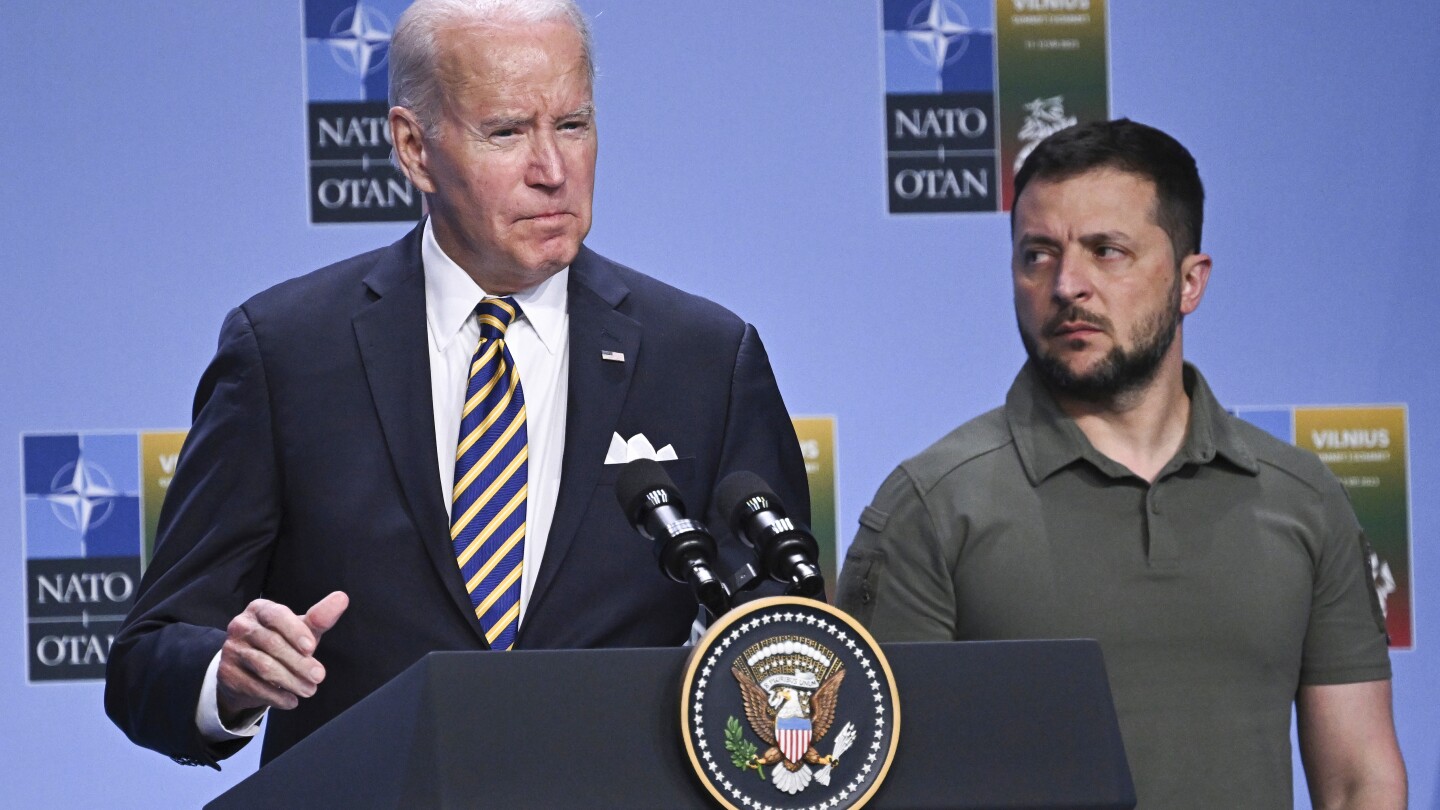BRUSSELS (AP) — NATO leaders plan to pledge next week to keep pouring arms and ammunition into Ukraine at current levels for at least another year, hoping to reassure the war-ravaged country of their ongoing support and show Russian President Vladimir Putin that they will not walk away.
U.S. President Joe Biden and his counterparts meet in Washington for a three-day summit beginning Tuesday to mark the military alliance’s 75th anniversary as Russian troops press their advantage along Ukraine’s eastern front in the third year of the war.
Speaking to reporters Friday, NATO Secretary-General Jens Stoltenberg said NATO’s 32 member countries have been spending around 40 billion euros ($43 billion) each year on military equipment for Ukraine since the war began in February 2022 and that this should be “a minimum baseline” going forward.
“I expect allies will decide at the summit to sustain this level within the next year,” Stoltenberg said. He said the amount would be shared among nations based on their economic growth and that the leaders will review the figure when they meet again in 2025.
NATO is desperate to do more for Ukraine but is struggling to find new ways. Already, NATO allies provide 99% of the military support it gets. Soon, the alliance will manage equipment deliveries. But two red lines remain: no NATO membership until the war is over, and no NATO boots on the ground there.
At their last summit, NATO leaders agreed to fast-track Ukraine’s membership process — although the country is unlikely to join for many years — and set up a high-level body for emergency consultations. Several countries promised more military equipment.



Ukraine could have kept its nuclear weapons… but Ukraine did not have proper leadership that could maintain such posture. These people would/could not run the state efficiently enough to fund a nuclear weapons program since they were mostly Russian plants looting the country. Corruption over national security has consequences… people need to hold their leaders accountable for their blunders.
They couldn’t have kept the weapons. They were being guarded by Russian soldiers, and Ukraine never had the activation codes. They got the best deal they could giving the USSRs nukes back to Moscow, rather than risking Moscow blowing them up in-situ. Moscow threatened that at one point during the talks.